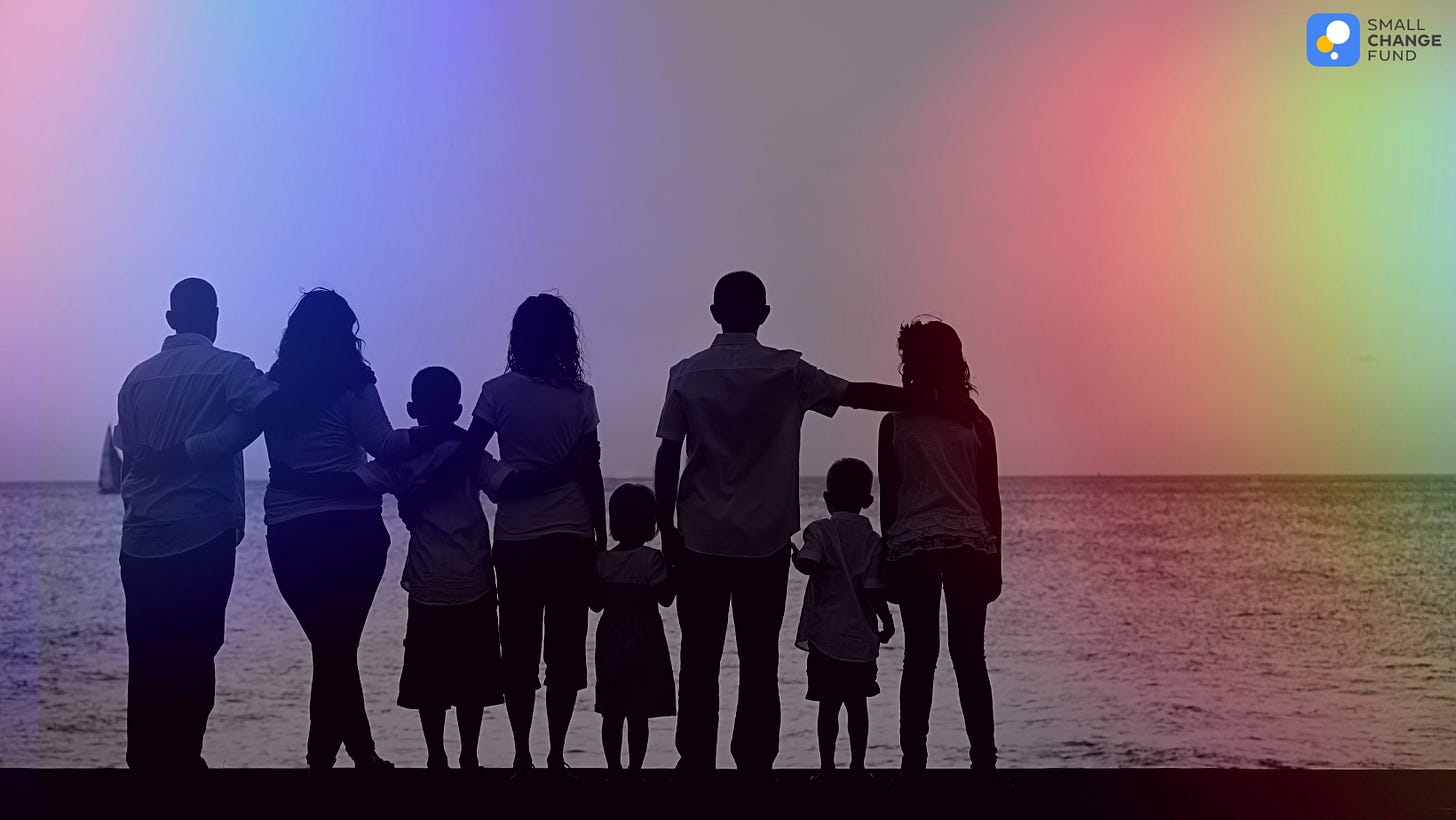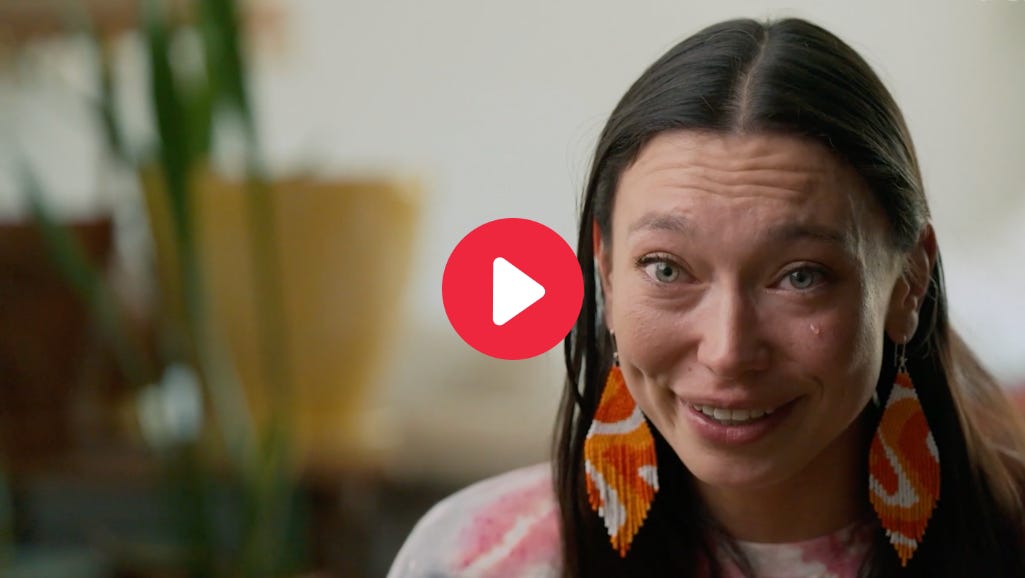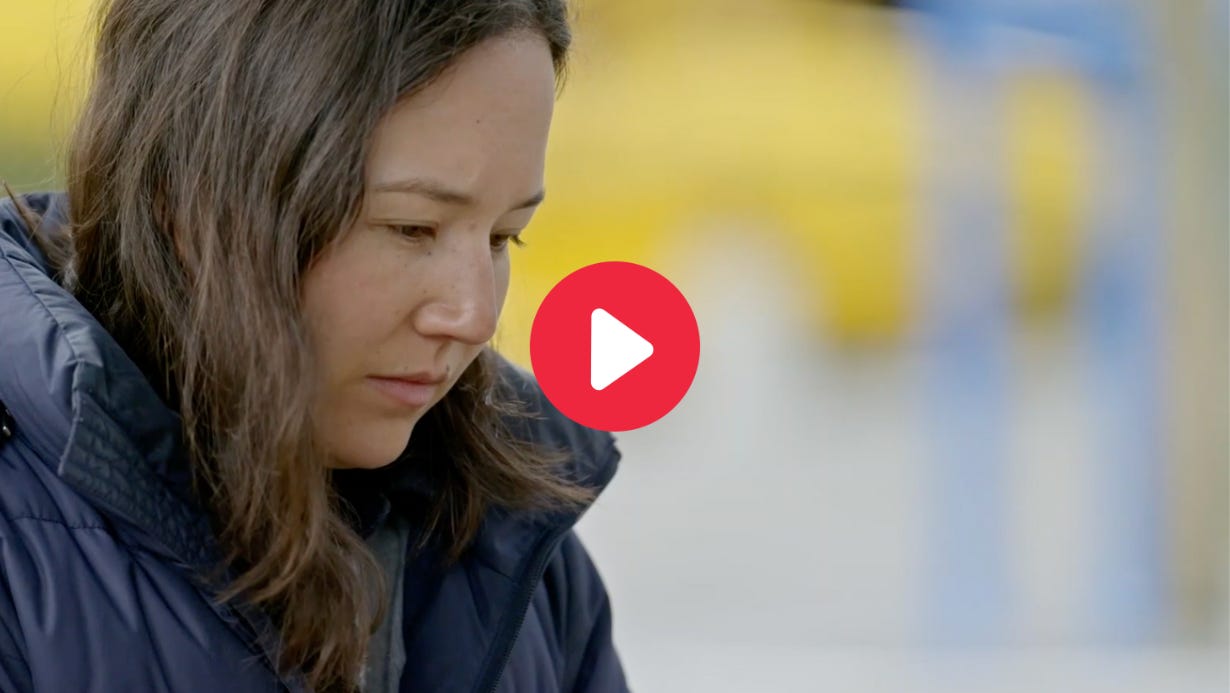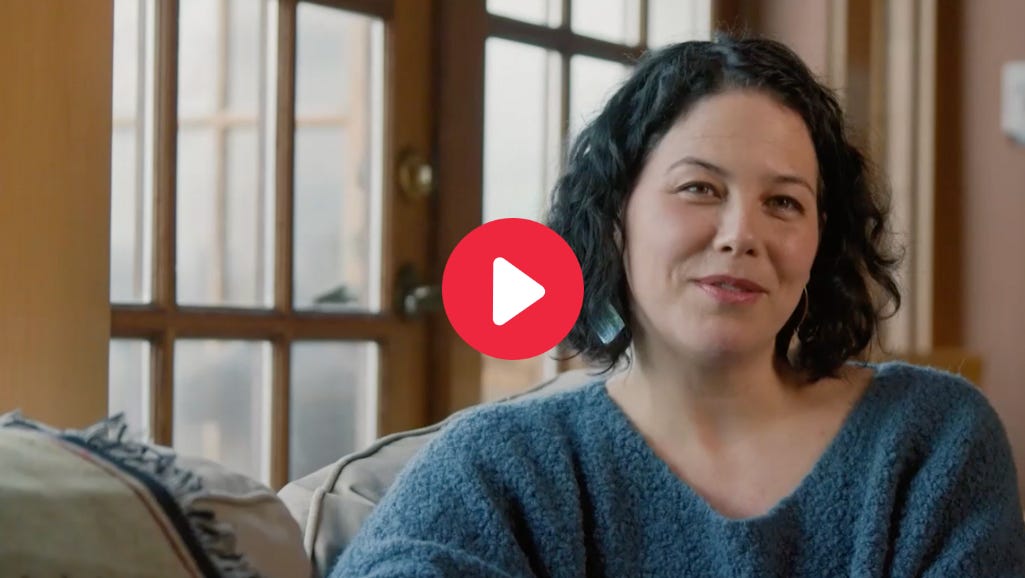Hi there!
Welcome to Gen Dread, a newsletter about how the climate crisis is making us feel, why that’s happening, and what we can do about it. Subscribe now to find community, comfort, and practical coping strategies from experts all around the world.
It’s time to start thinking beyond the binary
In last week’s edition of Gen Dread, we explored the agonizing decision many young people are currently grappling with: whether or not to bring a new baby into a climate crisis. This question is powerfully explored in The Climate Baby Dilemma, a new documentary directed by Canadian filmmaker Victoria Lean.
But when you look at that question, what do you see?
It’s a bit of a manufactured binary, isn’t it? While it’s a hugely important and increasingly common moral question right now, its focus on only two potential and opposing outcomes obscures the fact that a vast middle ground stretches out between them. Isn’t that kind of a relief?!
There are so many ways to be part of raising the next generation that don’t involve creating and birthing a biological child, yet the nuclear family is so thoroughly baked into our culture it can be hard sometimes to conceive beyond conceiving. Think about the average house: two, three or four bedrooms, not ten. Family passes to museums and zoos and ski hills are priced with four people in mind. Nosy aunts at Thanksgiving never ask you, “soooo, when are you going to go in on a ranch with six of your best friends and help raise their kids???? You’re not getting any younger!!!” (and if you need some coping strategies for handling the question they DO ask you, you can find them here).
What’s wrong with the nuclear family structure, anyway?
As the climate crisis grows more chaotic, it’s crucial that we’re able to collectively imagine and normalize family structures beyond the whole two hetero parents, 2.832 kids, dog, and yard situation. When that feels like the only option and the only hope for ever being part of a family, and when that’s the only genre of family that ever gets modeled, celebrated, and legally and culturally legitimized, it needlessly – but so understandably – causes our young people a tremendous amount of distress.
In addition, the nuclear family is somewhat incompatible with bold and progressive climate action because it upholds and benefits unchecked capitalism. When humans lived in big, sprawling, multigenerational groups, we shared resources, food, childcare duties, tools, and shelter. But when everyone’s siloed off, a handful of people in their own private house, now suddenly everyone needs to buy their own car, and daycare tuition, and lawnmower, and dishwasher, and and and and and. This setup also ensures that the parents have no choice but to work, and work hard; if there were, say, four adults and thus four incomes coming into a family instead of just two, those four adults would each have the luxury of working far less.
Another reason we need to start envisioning the nuclear family as an option for family life rather than the option is that biological motherhood has become hopelessly tangled up and almost synonymous with womanhood. This triggers a whole other cascade of problems: the way it punishes and isolates child-free, child-ambivalent, and infertile women; the unequal expectation it places on women versus men; and the fact that not everyone with a uterus identifies as female in the first place.
So, where can we look to start envisioning a more expansive definition of “family”?
“Alloparenting” is a term coined by the American anthropologist Sarah Blaffer Hrdy, and a useful one here. Imagine a big fortress of extended family members, distant relatives, and non-relatives who encircle a child, provide care, and share in the child-raising duties. This offers the child different kinds of safe havens as they grow up while also allowing the biological parents time for much-needed rest and self-care. Those souls are called alloparents. Examples of alloparenting exist in many wild animal populations; in some primate communities, the allomothers even nurse the young!
As the feminist theorist Donna Haraway writes, it becomes easier to look beyond the traditional nuclear family structure when we start to shift our goal away from making babies necessarily, and toward the idea of making kin, as a mode of improving the sustainability of our societies. Of course, kinship systems are ancient ways of relating and caring that are still practiced today by many Indigenous peoples. Responses to Haraway’s argument can quickly descend into debates around overpopulation and the problems of equating human footprints with carbon footprints. Instead, let's focus here on her invitation to imagine wider scenes of support that allow children to flourish when parents are multiple and may or may not be each other’s lovers, and may or may not share DNA with the child.
Matthew Schneider-Mayerson, a professor at Yale-NUS College in Singapore, has done some fascinating work to put this new paradigm into practice: he recently designed a course called Reproduction in the Age of Climate Change, the first of its kind in the world. He feels the Western nuclear family is an outdated way of thinking and frequently traps us in isolation. The only options it offers are to become lone wolf or sole/nuclear provider, both of which place a ton of pressure on a person and reduce their vibrant, complex, three-dimensional identity to a Y/N procreation status. Instead, he gets his students to consider a whole expanse of other options for building a family, from queer chosen family structures to adoption to Indigenous kinship traditions, where the family often means the entire community. You can check out this interview he did with Gen Dread below:
Writer Sophie Kohn is a new member of the Gen Dread team. Her parents both immigrated to Canada as adults, and when they had her and her sister in the ‘80s, their biological families were multiple oceans away. And so, Sophie’s mother’s close friends and colleagues stepped up and helped. She grew up calling them all “aunt”, though they had no blood in common. Fierce and magical women surrounded her like stoic, protective oaks conferring in the breeze, and she was raised under a thick canopy of them. To this day, they still offer Sophie advice, practical help, and the rare and beautiful gift of bearing witness to her entire life story. There’s no question that Sophie is a better human with an infinitely richer life as a result.
Many people have life-long bonds like this that forge fruitful communities of care and concern, but contemporary/dominant culture has not often celebrated them. What might it mean to confront the climate crisis with an appreciation for alloparenting as part of the adaptation toolkit? Especially as more and more children are displaced by climate impacts, and find themselves in need of loving homes? Now is a time for deep creativity and open-heartedness in how we envision and enact family, chosen or otherwise.
Making Waves
Anishinaabe artist, activist and mother Sarain Fox explains why, as an Indigenous person, she has never questioned having children. Watch her explaining why the choice to be a mother, to raise and protect her children is the revolution in this CBC Docs video below:
Jinhwa Hwong-Ambrose is a mother, climate activist and member of For Our Kids, a network of parents, guardians, grandparents and allies fighting for a better world for our children and grandchildren. Watch her transforming her climate anxiety into nation-wide activism in this CBC Docs video below:
Known around the world for a speech she gave at the 1992 United Nations Conference on Environment and Development when she was 12, Severn Cullis-Suzuki is still fighting for change - now, as a parent. Watch her explaining why she says she's “all in” as a parent tackling the climate crisis in this CBC Docs video below:
As always, you can share your thoughts with me and reach the Gen Dread community by commenting on this article or replying to this email. You can also follow me on Twitter and Instagram. I am not able to respond to every message, but I read them all and reply when I can.
‘Till next time!










Share this post